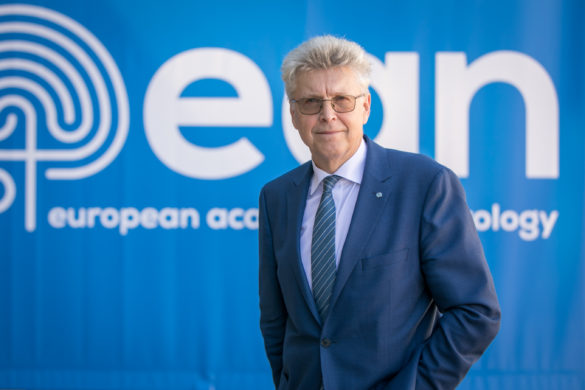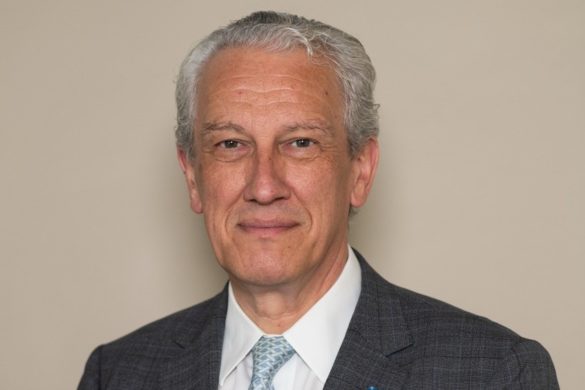by Günther Deuschl
Neurological diseases are seriously affecting life quality of the patients. Many of these diseases are followed by life-long disabilities or the patients even need care for the rest of their lives. Our daily work for the patients with neurological diseases transfers for politicians into costs for the Society and a recent analysis has found the annual costs for neurological diseases in Europe to be >300.000 Mio €¹, which is more than the annual budget of the German government. Certainly this will rapidly increase in the years to come as in Europe the population above 65 years as a fraction of those below 65 years will rapidly increase from less than 25% in 2015 to more than 52% in 2060². Besides reducing the burden of neurological disease this enormous increase in costs is the stimulus for politicians to make plans how to fight against neurological disease. This is also why neurologists and health politicians clearly have a common interest.
The European Commission and the European Parliament have therefore since long developed programmes to support research and development. This has been achieved in the different framework programmes and over time the amount of money has been steadily increased for this European funding. The money is usually invested in programmes lasting several years and after the 7th framework programme between 2006 and 2013 the term for the next programme ‘Horizon 2020’ has begun. The amount of money the EU invested in research in general has been steadily increasing from 3 billion for the period 1984-1987 to almost 80 billion for Horizon 2020. Of this money 8 billion are reserved for health research.
For the first time the decision to invest that much money into health research has been accompanied by establishing an advisory body, the ‘scientific panel of health’ (SPH)³. This is a group of 28 researchers who are in charge to “analyze bottlenecks preventing the achievement of better health and wellbeing for all”, to “identify long term trends influencing health and wellbeing” and to “propose strategies to promote the effective exploitation of knowledge”. In essence this SPH will act as an advisory board for the European Commission and the European Parliament. The EAN is proud to announce that 3 distinguished members of our Society have been proposed by the EAN Board and were finally appointed by the EU Commission for this position. They are Prof. Wolfgang Oertel, Germany, co-ordinator of the EAN European Affairs sub-committee, which is part of the EAN Liaison Committee; Prof. Richard Frackowiak, Switzerland, member of the EAN European Affairs sub-committee, and Prof. José Ferro, past president of the ENS, co-editor of Neuropenews and founding member of the EAN. This will lead to a strong representation of neurology and clinical neurosciences in the SPH. Research policy for brain diseases is not discipline specific but will certainly cover the interests of all neighboring disciplines like psychiatry, neurosurgery, neuroradiology and all neurosciences. There is also a particular emphasis on liaising with the patient organisations. In Europe this is in particular the association of patient societies, the European Federation of Neurological Associations (EFNA).
All three are not working in isolation but they will integrate important suggestions and recommendations from EAN members and other neuroscientists in Europe. The Board of the European Academy of Neurology joins me in congratulating these three distinguished EAN members for their new and exciting appointment.
President of the
European Academy of Neurology
References:
- Olesen J, Gustavsson A, Svensson M, Wittchen HU, Jonsson B. The economic cost of brain disorders in Europe. Eur J Neurol. 2012 Jan;19(1):155-62
- http://epp.eurostat.ec.europa.eu/statistics_explained/index.php/.
- COUNCIL DECISION of 3 December 2013 establishing the specific programme implementing Horizon 2020 – the Framework Programme for Research and Innovation (2014-2020) and repealing Decisions 2006/971/EC.











